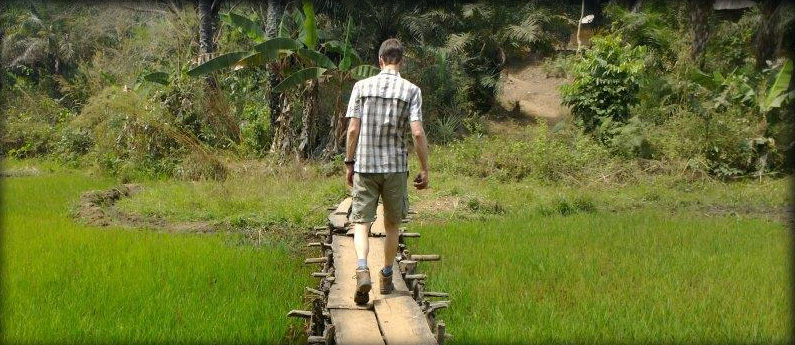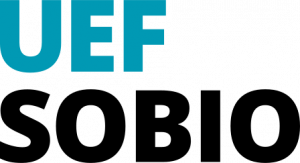Sobio Days 2020
Discourses and Imaginaries of the Sustainability Pathways in the Transition to a Biobased Society
December 9, 2020
10:00–16:00 (Finnish time, UTC+2h), online via Zoom
Transition to sustainable and climate-neutral future is currently considered as the development of the global economy based on the utilization of bioresources instead of fossils. Bioeconomy has become a trendy term and a widespread discourse in both science and policy recently. Knowledge-based bioeconomy provides a lot of opportunities for collaboration of various actors and regions on multiple governance levels to address global challenges.
Bioeconomy is perceived as a tool to solve the global climate crisis. However, bioeconomy-driven intensification of bioresources utilization may provoke other crises on local and regional levels. For instance, the crises caused by unsustainable nature management practices. Overexploitation of forests, agricultural lands or fish farms may lead to resource depletion, environmental degradation, biodiversity decline, and violation of local communities’ rights.
Discourses and imaginaries of sustainability issues in the transition towards a biobased climate-neutral society should be critically analyzed.
SOBIO network invited fellow scholars to discuss the recent social scientific bioeconomy and biosociety research and the following topics:
- What are the benefits, risks, and socio-ecological trade-offs in the context of bioresource intensification driven by the concept of bioeconomy growth?
- What are perceptions of ‘sustainable’ bioresource management in an era of bioeconomy discourse boom as a tool to solve the climate crisis?
- What new ways and practices are needed in conceptualizing of sustainability of making societal transformation towards biobased society?

Keynote presentations
Dr. Alex Giurca, University of Freiburg: Our role as scientists in coproducing bioeconomy imaginaries
Alex Giurcaholds a PhD in environmental policy from the University of Freiburg, and a double Master’s degree in Forestry and Agriculture from the University of Eastern Finland and the Swedish University of Agricultural Sciences (SLU). His work experience and interests are in the area of environmental policy and governance, with particular focus on sustainability transformations such as the bioeconomy. His most recent work broadly focuses on the actors, innovation networks, policies and politics shaping the bioeconomy in Europe and beyond.
KEYNOTE ABSTRACT
How can scholars open up bioeconomy policy debates and offer alternative imaginaries of sustainable transformations? Researchers have an important say in how sustainability transformations are envisioned and translated into practice. In this presentation, we will discuss how researchers co-produce certain visions or ‘imaginaries’ of sustainable futures, thereby naturalizing or challenging various sustainable development trajectories. More specifically, we will focus on research engaging in the forest-bioeconomy, i.e. a particular transformation process that has gained momentum worldwide over the past decade. We will conclude our session by discussing a series of strategies for researchers who are interested in opening up forest-based policy debates and offer alternative imaginaries of sustainable bioeconomy transformations.
Dr. Sarah Mubareka & Dr. Nicolas Robert: Building an EU Bioeconomy Monitoring system: development processes, future pathways, and the importance of a collaborative approach
Sarah B. Mubareka has a Master’s degree in Environmental Science from the University of Sherbrooke (Canada), and a Ph.D. in Remote Sensing from the same institution. She joined the Joint Research Centre (JRC), the European Commission’s science and knowledge service, in 2000. She is leading the JRC activities on Biomass Assessment Study and the development of the EU Bioeconomy Monitoring System.
Nicolas Robert is a researcher at the Joint research Centre of the European Commission since 2016. Bringing together economics and environmental sciences, his work focuses on the social and economic dimensions of the forest-based bioeconomy and the monitoring of the bioeconomy. He holds a master’s degree in plant sciences from the Paris-Grignon’s National Institute of Agronomy (INA P-G) and a PhD in economics from AgroParisTech. He worked previously worked at the Mediterranean Office of the European Forest Institute, the French National Research Institute of Agronomy (INRA) and the French National Institute of Geographic and Forest Information (IGN).
KEYNOTE ABSTRACT:
The revision of EU bioeconomy policy and its EU Bioeconomy Strategy update in 2018 included an internationally coherent monitoring system in its accompanying action plan. The monitoring system should enable to track economic, environmental, and social progress towards a sustainable bioeconomy in all EU member states. The initial version of the monitoring system has been developed in a collaborative process involving a vast number of stakeholders and expertise from member states, academia, and international organizations. The continuous engagement with a wide range of experts and stakeholders is envisioned to assure the up-to-date functionality of the monitoring system. A first online version of the Monitoring system has been published on European commission’s website in November 2020.
Seminar Programme
10.00 Seminar opening, opening words & Introduction about SOBIO network (Prof. Teppo Hujala)
10.10 Keynote presentation by Dr. Alex Giurca: Our role as scientists in coproducing bioeconomy imaginaries (chairs Irmeli Mustalahti and Teppo Hujala)
Keynote slides: Alex Giurca_Our role as scientists in coproducing bioeconomy imaginaries
11.00 Keynote presentation by Dr. Sarah Mubareka & Dr. Nicolas Robert : Building an EU Bioeconomy Monitoring system: development processes, future pathways, and the importance of a collaborative approach (chair Dr. Moritz Albrecht & comments Dr. Markus Lier)
12.00 – 13.00 Lunch break
13.00 – 15.45 Sessions of short presentations (chairs Prof. Jarmo Kortelainen + Dr. Henna Konu)
Session 1 (At 13.00 -14.15)
Dr. Henna Konu, Natural Resources Institute Finland (Luke): Designing a new solution to support forest landscapes in a tourism destination – Landscape Value Trade in Ruka-Kuusamo. Presentation slides: Henna Konu_Designing a new solution to support forest landscapes in a tourism destination – Landscape Value Trade in Ruka-Kuusamo
Dr. Antti Erkkilä, UEF: Young forest owners and the concept of responsibilization. Presentation slides: Antti Erkkilä_Young forest owners and the concept of responsibilization
Meenakshi Piplani, AgroParisTech: “A holistic forest-based bio-economy framework with theory and transition pathways: the case of primary products in Finland“
Denis Dobrynin, UEF: Global Bioeconomy and Forestry Intensification Discourses in Russia
Dr. Tuomo Takala, HY: Planning sustainable bioeconomy in private forests. Presentation slides: Tuomo Takala_Planning sustainable bioeconomy in private forests
Session 2 (At 14.30-15.45)
Dr. Sabaheta Ramcilovic-Suominen, Natural Resources Institute Finland (Luke): JUST GLOBE: Why Justice and Politics matter in the context of EU Bioeconomy?
Dr. Marko Lovrić, European Forest Institute (EFI): Designing country-level bioeconomy transition pathways: a product-space approach
Rijal Ramdani, UEF: Palm Oil Expansion to the Tropical Peatland: Distrust between Advocacy and Service ENGOs. Presentation slides: Rijal Ramdani_Palm oil expansion in tropical peatland Distrust between advocacyand service environmental NGOs
Virpi Pakarinen, UEF: In the middle of The Web of Rural Food. Presentation slides: Virpi Pakarinen_In the middle of The Web of Rural Food
Shahid Mallick, UEF: Culture, Climate Change, and Water Conservation: Water ecosystems and culture-based adaptation practices in Bangladesh. Presentation slides: Shahid Mallick_Culture, Climate Change, and Water Conservation_Water ecosystems and culture base adaption practices in Bangladesh
15.45 Dr. Moritz Albrecht: Towards inclusive and sustainable circular bioeconomy: A summary of the results from the 2019 Sobio Roundtable in Brussels.
15.55 Closing words (Prof. Irmeli Mustalahti)
16.00 – 17.00 SOBIO network meeting: Planning the year 2021

